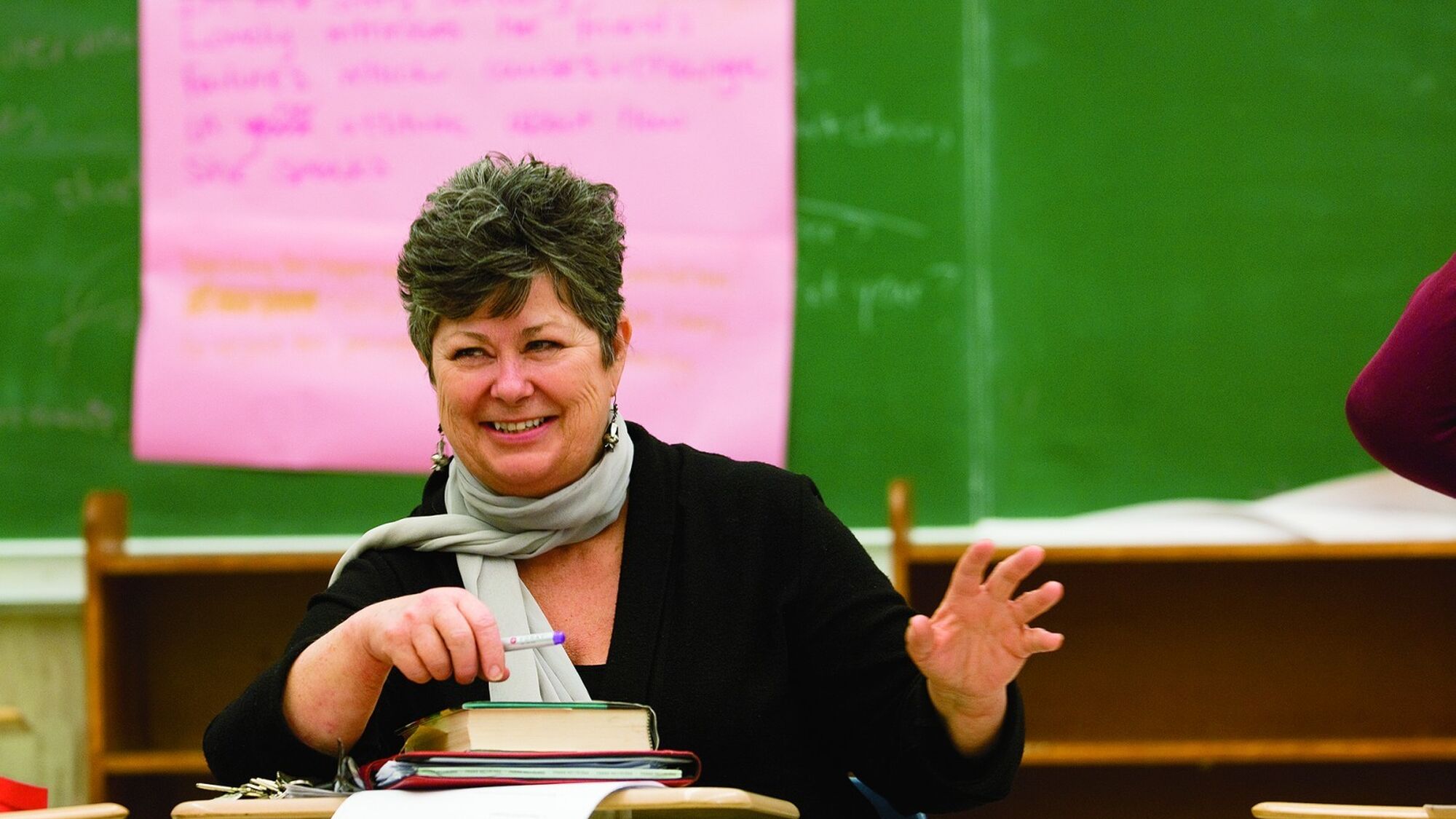In 1980, after five years of teaching high school English in Portland, Oregon, Linda Christensen was ready for more. “I kind of felt like I would be doing the same thing for the rest of my life if I stayed in the classroom,” she says, but when she looked around, the only avenues to leadership she could see involved leaving the classroom, either to become an administrator or leave K-12 education and head to the university.
Instead, on the recommendation of a respected colleague, she attended the Oregon Writing Project Summer Institute, where she met a group of teachers who were forging a new role: “I was so impressed that these were teachers who had remained in the classroom, and who were working out of their classroom teaching other teachers,” Christensen said. “That really changed my vision of what next.”
Christensen, along with a group of colleagues, including Bill Bigelow, Bob Peterson, Rita Tenorio, and Stan Karp, set out to become “classroom scholars.” “[We decided] that we would use what we were learning in the classroom and write about it and teach about it at conferences, and that that would become our scholarship,” she says.
Today, as the director of the Oregon Writing Project at Lewis & Clark College in Portland, Oregon and the Editor-In-Chief of Rethinking Schools, Christensen works to create opportunities for teachers to step into leadership and scholarship, without leaving the classroom.
In Rethinking Schools, a monthly magazine dedicated to social justice education, K-12 teachers write about their lessons in a national forum, sharing their work and experience in a way that other teachers can replicate. “What that says is teacher knowledge matters,” says Christensen, “that teachers know something about teaching.”
This message is mirrored in the Oregon Writing Project’s Summer Institute, where participants each develop lessons to teach to their cohort. After the Summer Institute, teacher-consultants participate in a year-long inquiry into teaching, working together to track and reflect on their teaching. This is followed by another year in which participants step fully into leadership, honing their ability to conduct professional development for other teachers, and writing about their teaching for publication.
The robust community of teacher-leaders coming through this pipeline provide professional development for educators around the region, as well as a source of camaraderie, support, and expertise for one another. What this all means is that Portland is home to a community of educators who take teacher knowledge seriously, who learn, reflect, and write together, and who step into leadership and scholarship, all without leaving the classroom.

